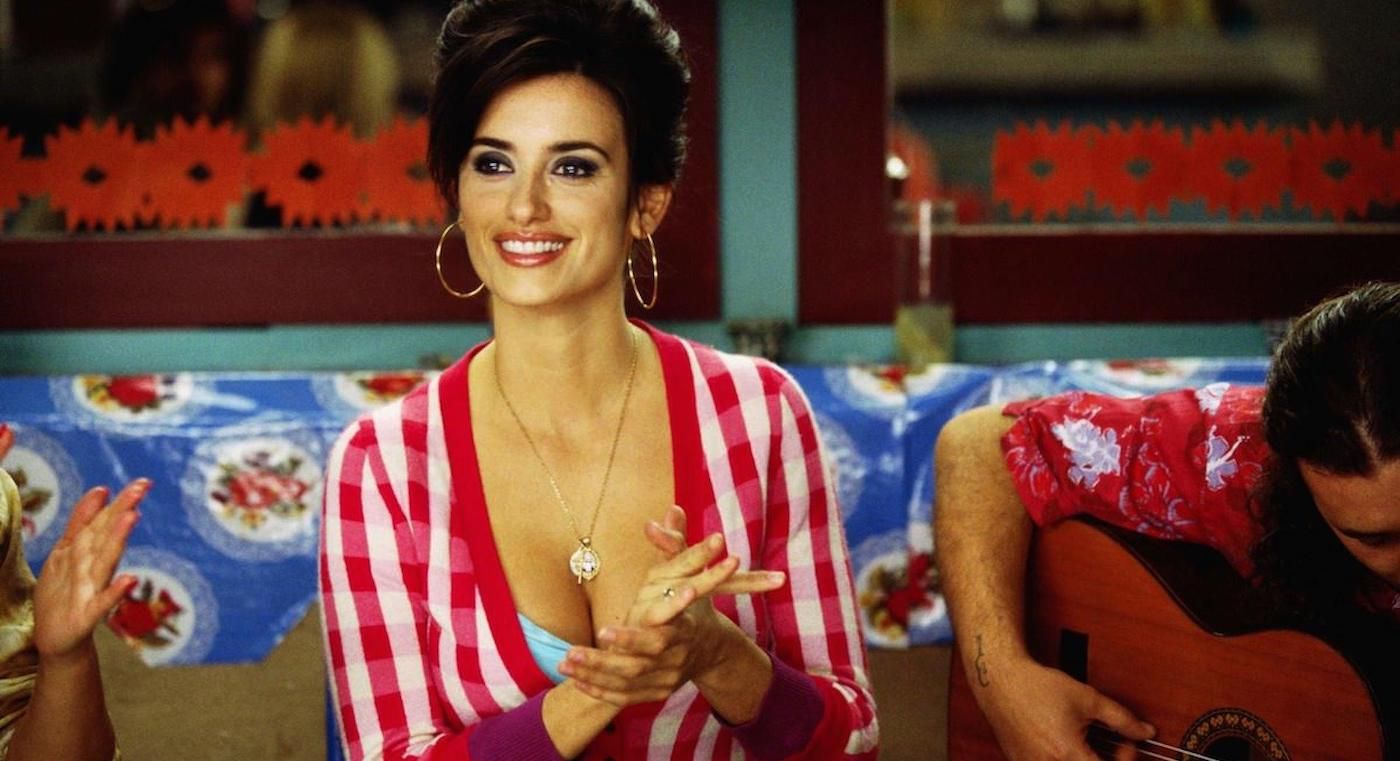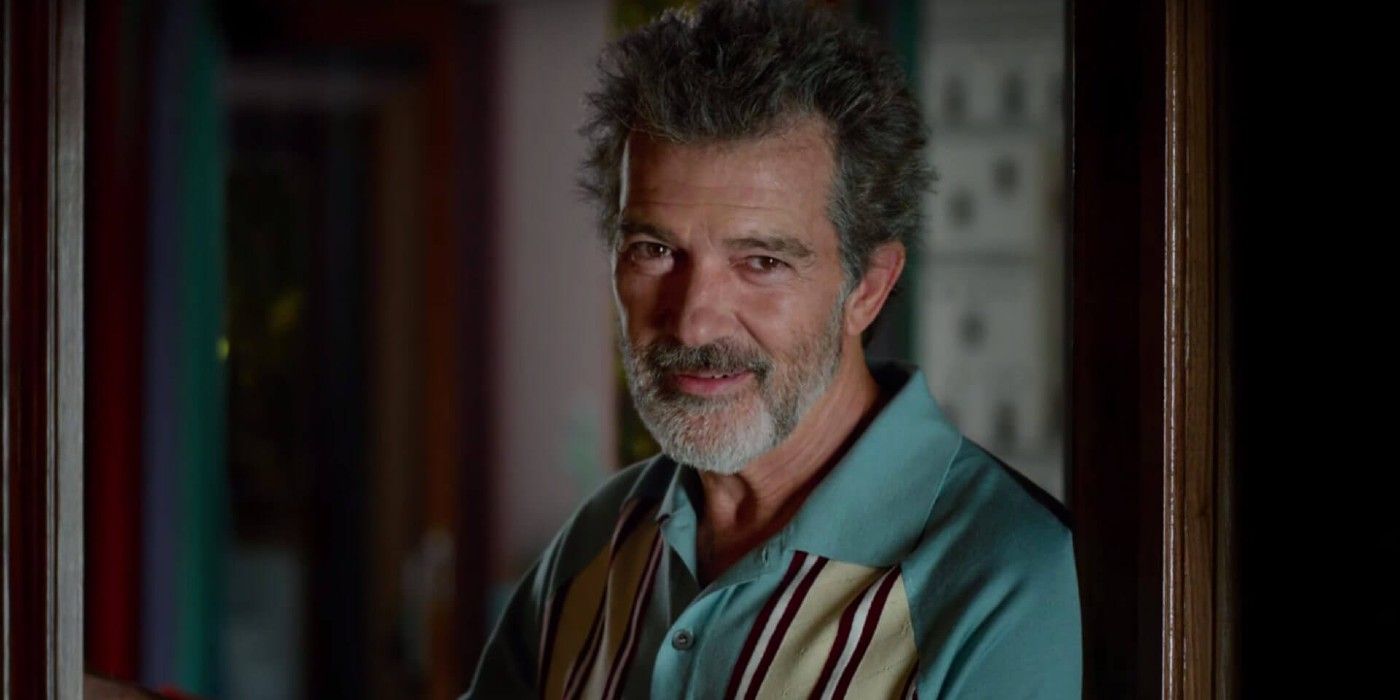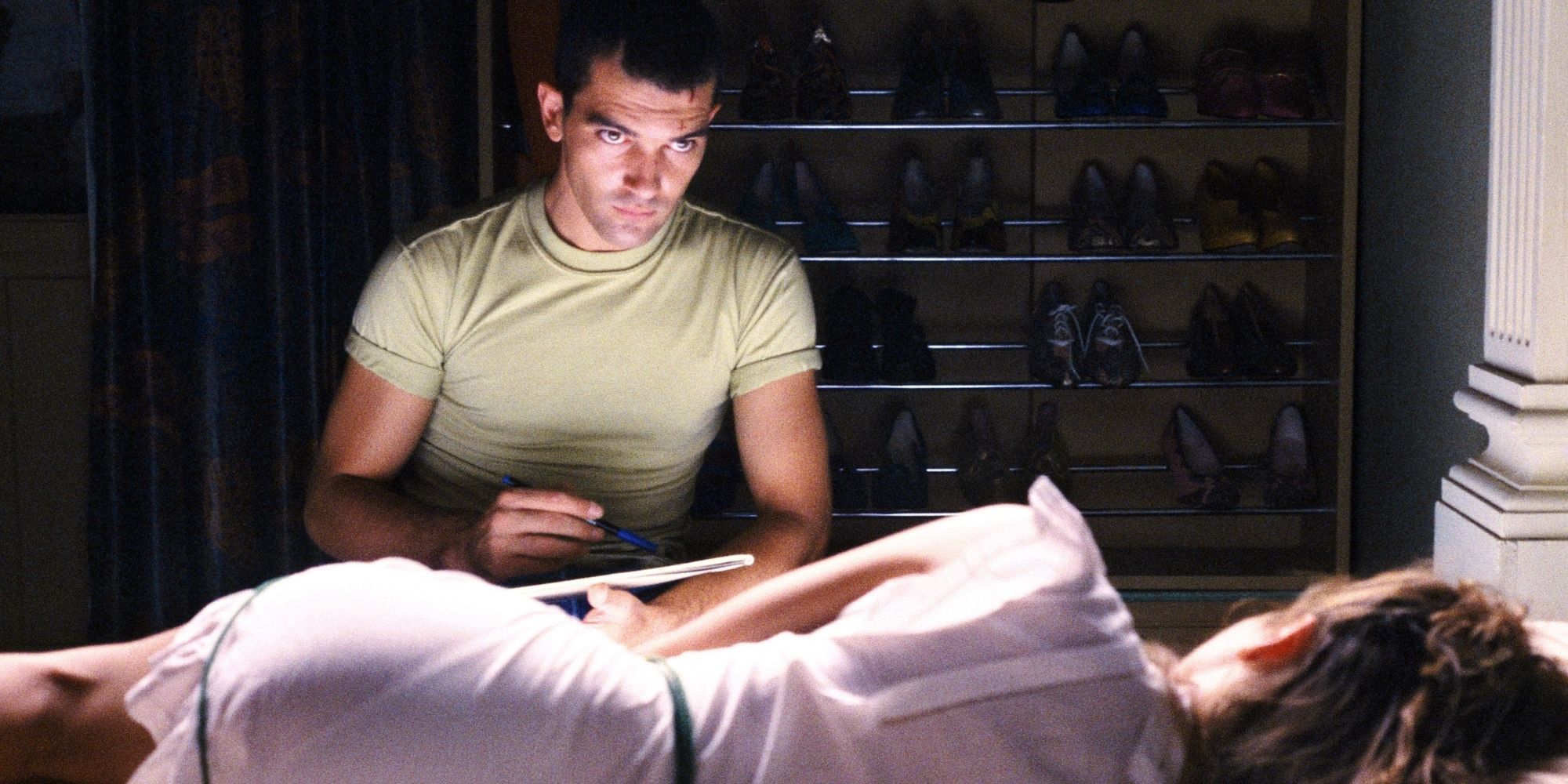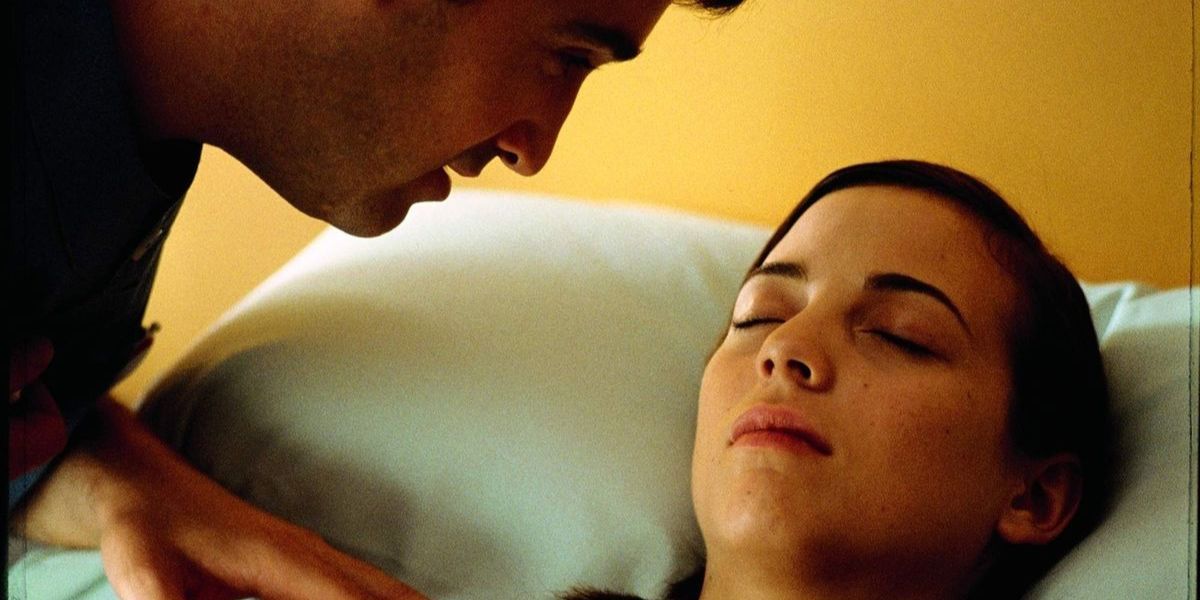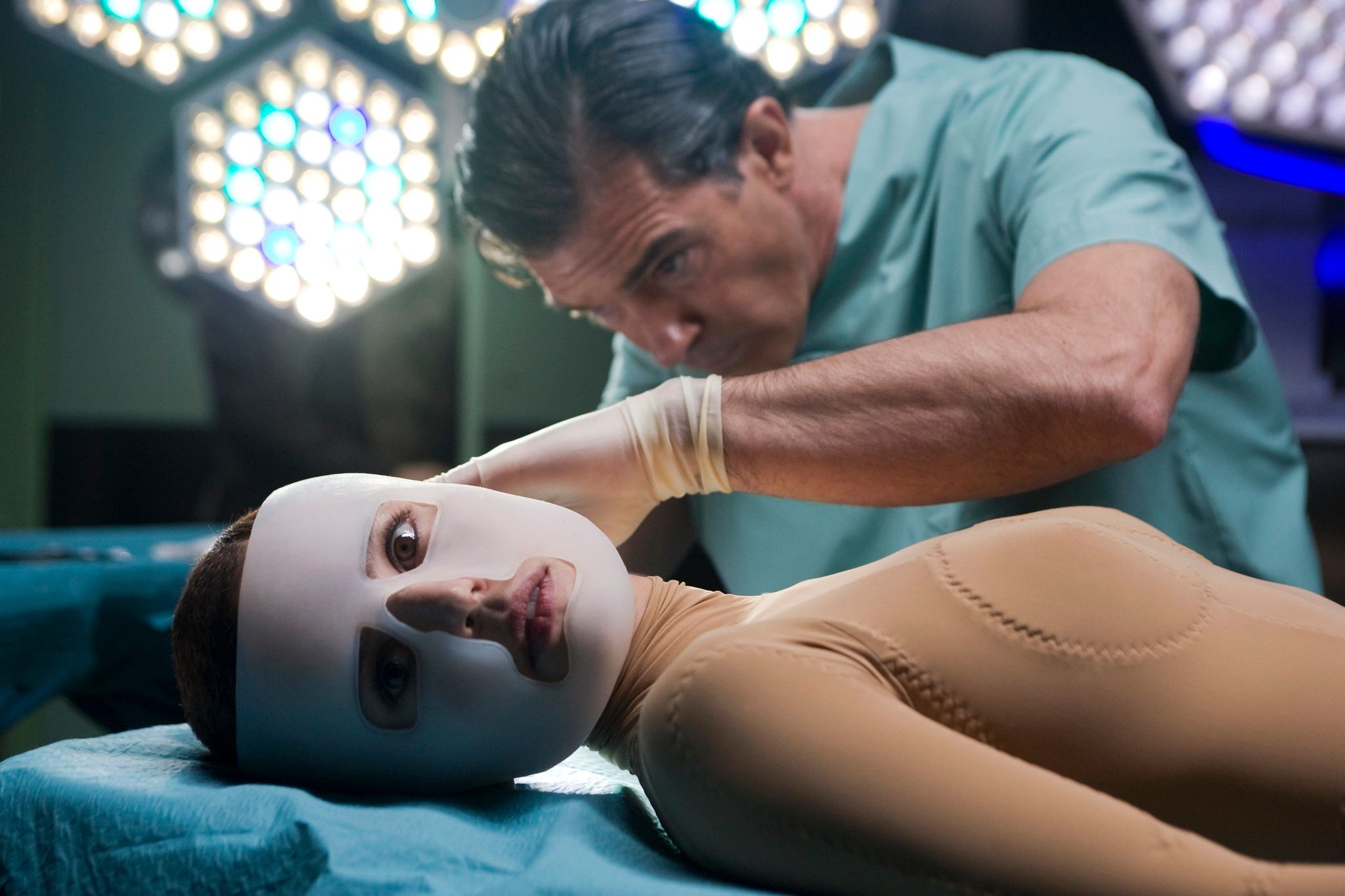After General Francisco Franco’s death in 1975, there has only been one Spaniard who has remained a constant voice for freedom, eccentricity, and love: Pedro Almodovar. Not only has the director proven to be a visionary artist, but he is also an important figure in Spain’s development as a free and accepting democracy after Franco’s reign of terror. Now, after years of rejecting opportunities to work in America, Almodovar is finally making the jump. This year, he announced a western film titled Strange Way of Life starring Pedro Pascal and Ethan Hawke as well as his first English language feature film, A Manual for Cleaning Women starring Cate Blanchett. For the Americans unaware of his zany genius, here are some of his best, most controversial, and inventive films.
Volver (2006)
In one of the most compelling melodramas of the 21st century, Almodovar made us laugh and cry. Volver takes place in a small Manchegan town where secrets are plentiful and the dead never rest. This is a movie that is best to enter cold and allow its mysteries to envelop you in this Spanish tale of betrayal, maternal affection, and trauma. With Penélope Cruz at the helm, the story gains grace and strength, and incredible emotional depth. No other film can boast of winning the Cannes Film Festival Award for Best Actress for all of its leading women. For a story that contains hints of Mildred Pierce with more modern reveals, this is the movie to see!
All About My Mother (1999)
All About My Mother won Almodovar his first Oscar for Best Foreign Language Film and forced the world to empathize with people who most would happily ignore. When Manuela (Cecilia Roth), a single mother in Madrid, sees her only son die on his 18th birthday, she decides she has to return to Barcelona to tell the father about the death of the son he never knew about. In the 1990s, when homophobia and transphobia were at an all-time high with the advent of the AIDS crisis, Almodovar gave humanity to the LGBTQ community and showed that anyone, no matter what they have done or who they are, deserves to be loved.
Parallel Mothers (2021)
His most recent film nearly landed Penélope Cruz the Best Actress Oscar and addressed Spain’s Francoist past in a way none of his other films have. Parallel Mothers follows two unmarried women who have become accidentally pregnant and meet while giving birth in the same hospital. Their lives become entwined in a way they could not have predicted and they teach each other not to forget the past and to forge a better future. Penélope Cruz and Milena Smit have impeccable chemistry and they delve into questions of motherhood, forgiveness, and the secrets that consume us with a delicate strength.
Pain & Glory (2019)
Almodovar’s most autobiographical film explores what it takes to become an artist. Pain & Glory tells the story of Salvador Mallo (Antonio Banderas) as he grows from a precocious young boy in a small Manchegan cave town to an accomplished auteur struggling to make sense of his life. Almodovar on one hand gives us a story about the pains of growing up in a strange place as well as an examination of his romantic failures and professional successes. More than any other of his films, this one feels almost like a perverse intrusion into his life that would be uncomfortable if it weren’t for the ease with which he tells this story.
Broken Embraces (2009)
This is an extremely distinct Almodovar-Cruz collaboration because it is the only time she has not played a pregnant woman or mother. Broken Embraces opens on the routine life of the blind retired director, Harry Caine (Lluis Homar), and flashes back to his disastrous love affair with his lead actress, Lena (Cruz), which led to his career's downfall. Almodovar explores unhealthy obsession and upper-class entitlement in a way no other director has. This is the tragedy that comes when money overpowers art and fear is mistaken for love.
High Heels (1991)
Many movies focus on the unhealthy Freudian love between a son and his mother, but not many focus on that same love between a daughter and her mother. One of Almodovar’s strangest films, High Heels follows Rebeca (Victoria Abril) as she reunites with her mother Becky del Paramo (Marisa Paredes) and becomes entangled in a murder investigation along the way. It’s textbook early Almodovar with its vibrant colors, random musical numbers, and exotic drag queens. Still, with all Almodovar’s eccentricities, it remains a grounded story about an abandoned child’s need for love.
Tie Me Up! Tie Me Down!
This remains Almodovar’s most controversial film. Tie Me Up! Tie Me Down! begins when 23-year-old Ricky (Antonio Banderas) is released from a mental institution and decides to kidnap porn star turned actress, Marina (Victoria Abril). Almodovar uses this zany, dangerous, and over-the-top love story to poke holes in mainstream film depictions of romance. Many Hollywood rom-coms feature morally dubious power plays and deceptions, but they are often dismissed as simply passionate shows of affection. Almodovar satirizes these cliches while also giving us a timeless and unique love story.
Women on the Verge of a Nervous Breakdown (1988)
The first of Almodovar’s films to receive an Academy Award nomination, Women on the Verge of a Nervous Breakdown made him an international star. The movie centers around Pepa (Carmen Maura), a 30-something Spanish woman reeling from her breakup with the evasive Ivan. After she decides to kill herself with a sleeping-pill-laced gazpacho, her world gets turned upside down. Considering the burning beds, Shiite terrorists, and murderous mothers that appear in this movie, it’s impossible to be bored by this feast of a film.
Talk to Her (2002)
Talk to Her is one of the few Almodovar movies that centers around two male protagonists, offering a very different perspective from the director. The two men, Benigno and Marco, couldn’t be more different, but their love for two women in comas links them together. Almodovar offers a sympathetic examination of the line between love and obsession and how easy it is to cross it. Whereas most men in Almodovar movies tend to get thoroughly punished for their heinous acts, these men are given a compassionate portrait. Though they aren’t saints, they are given a depth of feeling previously unseen for straight men in film.
The Skin I Live In (2011)
The Skin I Live In is one of the few terrifying and hard-to-watch films in the director’s oeuvre. It follows a brilliant plastic surgeon, Dr. Robert Ledgard (Antonio Banderas), who has recently created a damage-proof synthetic skin. His guinea pig is a mysterious woman imprisoned in his house who is not at all what she seems. This is body horror without the gory screams and with much more gender violence commentary. With the help of Banderas and Elena Anaya, Almodovar examines gender identity, sexuality, and the violence of self-realization in a uniquely unsettling way.


